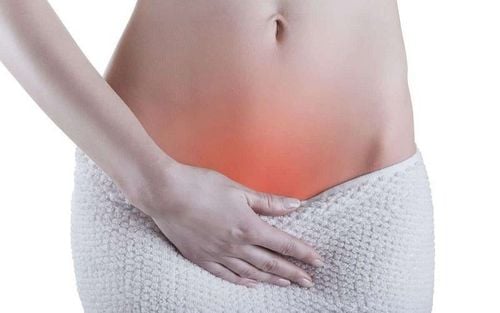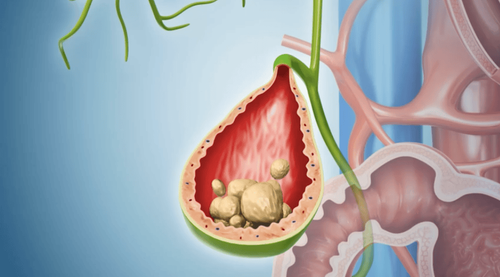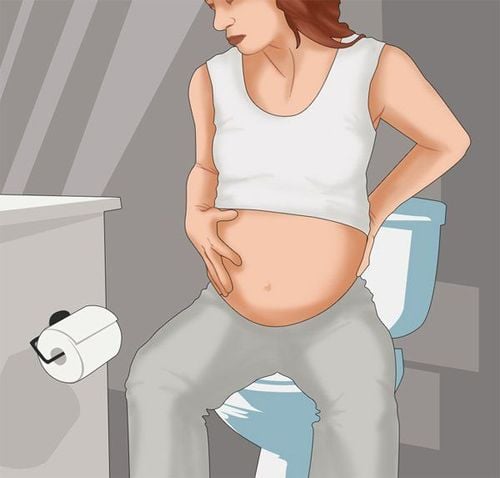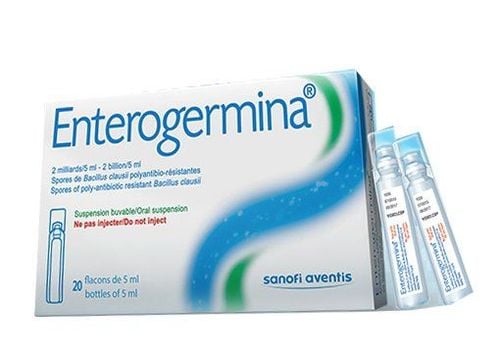1. How does postpartum constipation affect health?
Postpartum constipation is a frequent condition in which the patient has fewer than three defecations per week and difficulties passing stool due to solid stools, burning feeling in the anal area. Some reasons of postpartum constipation are:
- Hormone changes occur after giving birth and while breastfeeding.
- The mother's body is weaker after giving birth. If mom had a cesarean section, the rest time is longer. Less movement leads to less intestinal motility, resulting in postpartum constipation.
- Mothers frequently supplement an excessive amount of iron, calcium, and other minerals via tablets or food. These chemicals are causes of constipation due to problems in absorption.
- Furthermore, the perineal incision results in pain and makes it difficult to defecate. Many moms are reluctant to defecate, so they hold it in, which can lead to postpartum constipation over time.
- Postpartum women frequently have excessive abstinence, resulting in a lack of nutrients such as green vegetables and fruits. This increases the risk of developing postpartum constipation..
Constipation makes moms uncomfortable. Especially after giving birth the feeling worsens. Postpartum constipation not only causes fatigue and bloating for moms, but it also increases the risk of hemorrhoidsif left untreated. When stools remain in the intestines for an extended period of time without being expelled, they induce nausea, bloating, and poisoning.

2. Should breastfeeding mothers take constipation medication?
Postpartum constipation is common after birth and can resolve on its own with a healthy diet and lifestyle. However, if constipation persists, postpartum women should use stool softeners.
Stool softeners for constipation can enter breast milk and harm young children. Postpartum women should use stool softeners with a lower blood absorption rate, such as macrogol. This is a medication that increases the amount of water in the colon. The excess water is not reabsorbed, so the solution has a laxative effect. Furthermore, the stool softener macrogol, due to its enormous molecular weight, remains unabsorbed and undigested in the digestive tract. Therefore, it has no effect on breastfeeding children.
Furthermore,mothers should avoid using enemas to treat constipation.. Enemas can harm the anus, perhaps causing painful injuries. Long-term enemas through the anus, in particular, relaxes the anus' smooth muscles, resulting in a lack of the urge to defecate. Therefore, before using any type of stool softener to treat constipation, you should visit your doctor.

3. Preventing constipation after giving birth.
To prevent constipation, mothers must adjust their lifestyle and nutrition in addition to utilizing stool softeners. Examples include:
- Diet: Mothers should incorporate more fiber-rich foods to their daily diets. This is because fiber is important for digestive function, particularly for mothers who are constipated after giving birth. Adding additional fiber softens the feces, making it simpler to poop without straining. Fiber-rich foods include fruits, vegetables, and whole grains. Fiber-rich vegetables include Malabar spinach, jute, cauliflower, and carrots. Avocado, papaya, apple, and pear are all fiber-rich fruits.
- Prepare a variety of liquid dishes to aid digestion. Eat a variety of small meals throughout the day to relieve digestive stress and prevent bloating, flatulence, and indigestion.
- Limit the consumption of fried and oily meals, as well as stimulants.
- Drink enough water: water is a key component that the body needs, especially for women after childbirth. Mothers require more water than average persons to produce milk for babies. Adequate water consumption is critical for those who experience constipation after giving birth, since a lack of water causes the stool to harden and worsens constipation. Mothers can consume additional milk, fruit juice, or soup in addition to filtered water to ensure that their bodies are always adequately hydrated.
- Gentle activity: After giving birth, try to sit up, move around, and exercise softly. This not only helps the mother heal faster, but it also helps bowel movements better and minimizes the risk of constipation.
- Maintain a positive attitude: After giving birth, many moms may become upset if their lives change too much. Bad mental health has a bad impact on the body's digestion. As a result, moms should maintain a positive attitude while also sleeping extensively in order to prevent and alleviate postpartum constipation and reduce the risk of postpartum depression.
- Practice bowel habits: When defecating, it is critical to develop excellent habits that not only help reduce postpartum constipation but also assist the digestive system function more effectively. Here are some principles for practicing bowel habits:
- Go to the toilet on time. Make a practice of defecating at the same time every day. The optimal time is between 5 and 7 a.m., because this is when the colon detoxifies. Maintaining the practice of defecating on time will help the digestive system run more smoothly and consistently.
- Sit in the proper position: Squatting is considered the ideal position for defecation. Most households now utilize toilets, so mothers might improve this by placing a small stool under their feet when defecating.
- Do not delay defecation: As soon as you feel the urge to defecate, go immediately. If you frequently delay defecation, the stool will stagnate, grow drier and firmer, and exacerbate postpartum constipation. Furthermore, long-term accumulation of waste in the digestive tract can produce toxins that are damaging to the body.
- Do not sit on the toilet for too long: When defecating, mothers should avoid sitting for too long, concentrate on feces, and do not defecate while monitoring the phone or reading the newspaper. Sitting too long while defecating puts a lot of strain on the veins in the anus, which causes constipation and hemorrhoids.
In summary, after giving birth, many moms experience constipation, which causes discomfort, pain, and has negative impacts on their everyday life. However, stool softeners can impact young children's health by entering the bloodstream and milk. As a result, before taking the medication, moms consult a doctor to examine the health of both the mother and the baby.
Please dial HOTLINE for more information or register for an appointment HERE. Download MyVinmec app to make appointments faster and to manage your bookings easily.













